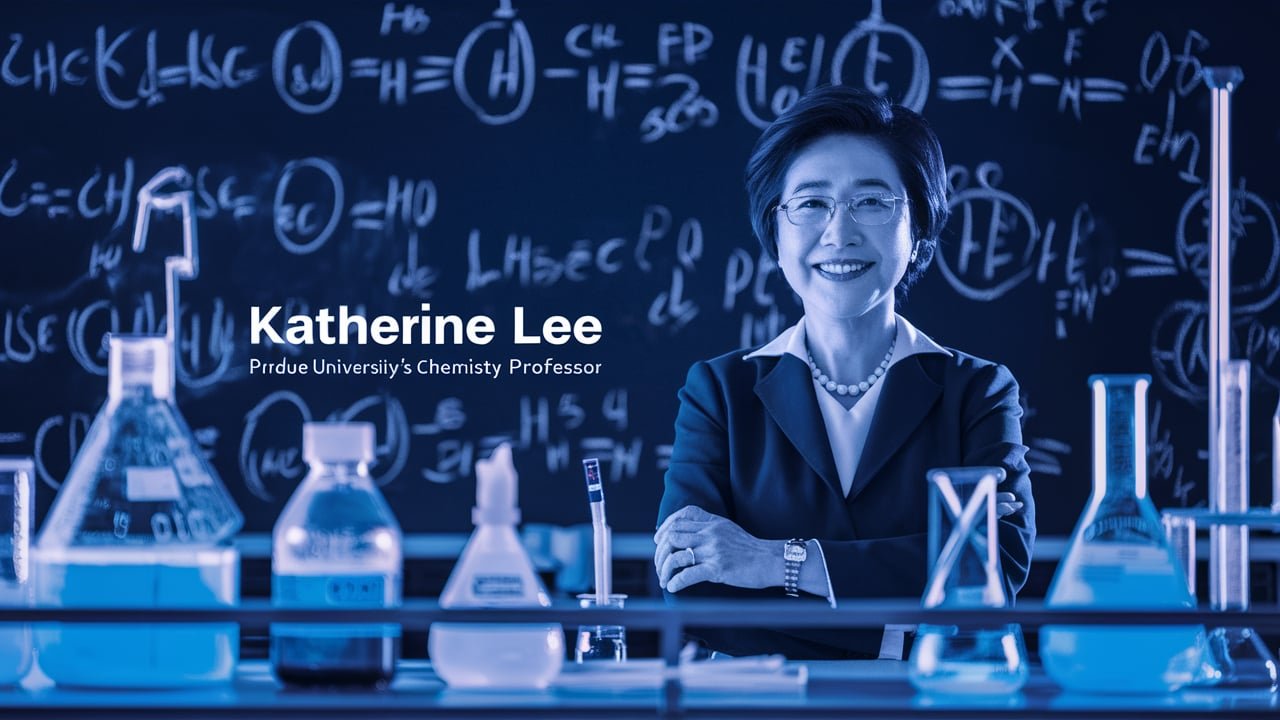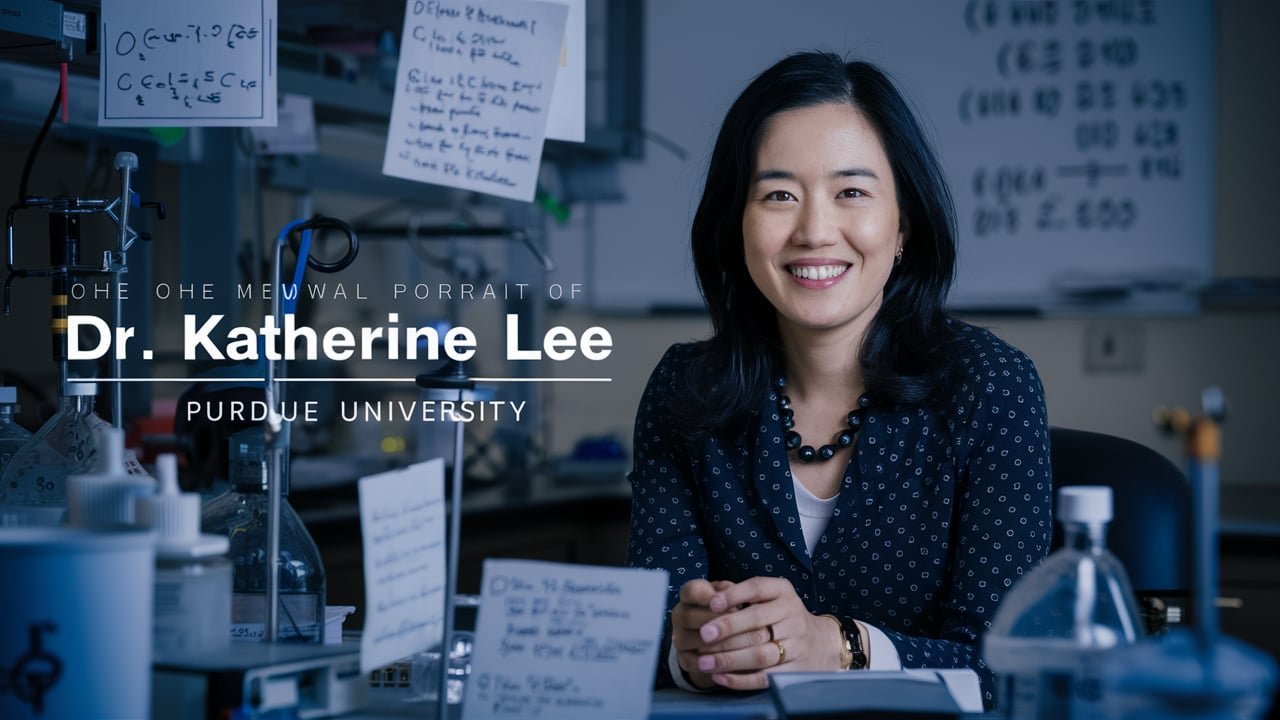Katherine Lee: Pioneering Chemical Research at Purdue University
In the dynamic landscape of modern chemistry research, Dr. Katherine Lee stands as a compelling figure at Purdue University, where her groundbreaking work bridges the gap between traditional organic synthesis and emerging computational methods. Her innovative approach to solving complex chemical problems has not only advanced our understanding of reaction mechanisms but has also opened new pathways for drug discovery and materials science. As an associate professor in Purdue’s esteemed Department of Chemistry, Lee’s contributions have reshaped how we approach chemical synthesis and molecular design.
Early Career and Academic Journey
Dr. Katherine Lee’s path to becoming a leading figure in chemistry was marked by an unwavering dedication to scientific excellence and a profound curiosity about molecular interactions. After completing her undergraduate studies at the University of California, Berkeley, where she graduated summa cum laude with a degree in Chemistry, Lee pursued her doctoral research at Stanford University. Under the mentorship of renowned organic chemist Dr. Robert Williams, she developed novel methodologies for asymmetric catalysis, earning her Ph.D. with distinction. Her postdoctoral work at MIT’s Department of Chemistry further refined her expertise in computational chemistry and machine learning applications, setting the stage for her future research directions. This unique combination of experimental and computational expertise would later become a hallmark of her research program at Purdue University.
Revolutionary Research at Purdue

At Purdue University, Dr. Lee’s research laboratory has become a hub for innovative chemical research that combines traditional experimental techniques with cutting-edge computational methods. Her team’s work focuses on developing new synthetic methodologies for complex organic molecules, with particular emphasis on environmentally sustainable processes. One of their most significant achievements has been the development of a novel catalytic system that enables selective C-H bond functionalization under mild conditions, a breakthrough that has important implications for pharmaceutical synthesis and fine chemical production. The Lee Research Group has also pioneered the use of machine learning algorithms to predict reaction outcomes and optimize reaction conditions, significantly reducing the time and resources required for chemical synthesis optimization. These developments have attracted substantial funding from both federal agencies and industry partners, solidifying Purdue’s position as a leader in modern chemical research.
Impact on Drug Discovery and Development
The implications of Dr. Lee’s research extend far beyond the laboratory bench. Her innovative approaches to chemical synthesis have had a profound impact on drug discovery and development processes. By combining computational prediction tools with experimental validation, her team has developed more efficient methods for synthesizing complex pharmaceutical intermediates. This work has led to collaborations with several major pharmaceutical companies and has resulted in multiple patents for novel synthetic methodologies. The Lee lab’s contributions to green chemistry have also demonstrated how sustainable practices can be incorporated into industrial-scale chemical processes without sacrificing efficiency or yield, addressing one of the most pressing challenges in modern chemical manufacturing.
Educational Leadership and Mentorship

Beyond her research achievements, Dr. Lee has made significant contributions to chemical education at Purdue University. Her innovative teaching methods integrate computational tools with traditional chemistry instruction, preparing students for the increasingly digital future of chemical research. She has developed several graduate-level courses that bridge the gap between theoretical concepts and practical applications, earning her multiple teaching awards. As a mentor, Lee has guided numerous graduate students and postdoctoral researchers who have gone on to successful careers in academia and industry. Her commitment to fostering diversity in chemistry has led to the establishment of several initiatives aimed at supporting underrepresented groups in science.
Recognition and Awards
Dr. Lee’s contributions to chemistry have earned her numerous prestigious accolades. She has received the NSF CAREER Award, the American Chemical Society Young Investigator Award, and Purdue University’s Outstanding Research Award. Her work has been featured in leading scientific journals, including Nature Chemistry, Science, and the Journal of the American Chemical Society. These recognitions reflect not only the scientific significance of her research but also its broader impact on the field of chemistry and its applications.

Frequently Asked Questions
What are the main research areas in Dr. Lee’s laboratory? Dr. Lee’s laboratory focuses on developing new synthetic methodologies, computational prediction tools for chemical reactions, and sustainable chemistry practices. The lab combines experimental and computational approaches to solve complex chemical problems.
How has Dr. Lee’s work influenced pharmaceutical research? Her development of efficient synthetic methods and computational tools has streamlined drug discovery processes, leading to more cost-effective and environmentally friendly ways to produce pharmaceutical compounds.
What opportunities are available for students in Dr. Lee’s research group? The Lee Research Group offers opportunities for graduate students and postdoctoral researchers interested in organic synthesis, computational chemistry, and machine learning applications in chemistry.
How does Dr. Lee’s work contribute to sustainable chemistry? Her research emphasizes developing environmentally friendly synthetic methods and optimizing chemical processes to reduce waste and energy consumption.
Conclusion
Dr. Katherine Lee’s work at Purdue University represents a perfect synthesis of traditional chemical expertise and modern computational methods. Her contributions have not only advanced our understanding of fundamental chemical processes but have also provided practical solutions to real-world challenges in drug discovery and sustainable chemistry. As she continues to push the boundaries of chemical research and education, her influence on the field grows ever stronger. The impact of her work extends beyond the academic sphere, offering promising solutions to some of the most pressing challenges in modern chemistry. Through her research, teaching, and mentorship, Dr. Lee is helping to shape the future of chemistry while inspiring the next generation of scientists at Purdue University and beyond.
